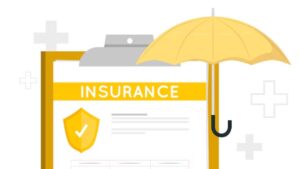Introduction to Student Loans
Navigating the world of higher education often involves dealing with the reality of student loans. These financial tools can open doors to educational opportunities that might otherwise be out of reach. But what exactly are student loans, and why are they so crucial for many students?
What Are Student Loans?
Student loans are funds borrowed to pay for education-related expenses, including tuition, room and board, books, and other supplies. Unlike grants or scholarships, loans must be repaid with interest. They are designed to help students who may not have immediate access to the necessary funds to cover their educational costs.
Why Student Loans Are Necessary
For many students, especially those from low or middle-income families, paying for college out-of-pocket is not feasible. Student loans provide a lifeline, allowing them to pursue their academic goals without having to worry about the immediate financial burden.
Types of Student Loans
Understanding the different types of student loans is crucial in making an informed decision. They primarily fall into two categories: federal and private loans.
Federal Student Loans
Federal student loans are offered by the government and come with several benefits, such as fixed interest rates and income-driven repayment plans.
Direct Subsidized Loans
These loans are available to undergraduate students with demonstrated financial need. The government pays the interest while you’re in school at least half-time, during the grace period, and during deferment periods.
Direct Unsubsidized Loans
Unlike subsidized loans, these are available to both undergraduate and graduate students regardless of financial need. Interest accrues during all periods.
Direct PLUS Loans
These loans are available to graduate students and parents of dependent undergraduate students. They require a credit check and may come with higher interest rates.
Federal Perkins Loans
Though phased out in 2017, these were low-interest federal loans for students with exceptional financial need.
Private Student Loans
Private loans are offered by banks, credit unions, and other private lenders. They typically have higher interest rates and fewer repayment options compared to federal loans.
Differences Between Federal and Private Loans
Federal loans usually offer more flexible repayment options and protections, while private loans can be more expensive and less forgiving in case of financial hardship.
How to Apply for Student Loans
The application process can seem daunting, but breaking it down into manageable steps can make it easier.
The FAFSA Process
The Free Application for Federal Student Aid (FAFSA) is the first step in applying for federal student loans. This form collects financial information to determine your eligibility for aid.
Choosing the Right Loan for You
Carefully consider your options, including the interest rates, repayment terms, and any additional benefits before choosing a loan.
Managing Your Student Loans
Effective management of your student loans can prevent financial strain and ensure you stay on track with repayments.
Understanding Interest Rates
Interest rates play a crucial role in the total cost of your loan. They can be fixed or variable.
Fixed vs. Variable Rates
Fixed rates remain constant throughout the life of the loan, while variable rates can change periodically based on market conditions.
Loan Repayment Options
Repayment plans vary, offering flexibility based on your financial situation.
Standard Repayment Plan
This plan requires fixed monthly payments over ten years.
Graduated Repayment Plan
Payments start low and gradually increase, typically every two years, over ten years.
Income-Driven Repayment Plans
These plans base your payments on your income and family size, making them more affordable for those with lower earnings.
Loan Forgiveness Programs
Certain programs can forgive your remaining loan balance after meeting specific requirements.
Public Service Loan Forgiveness
Available to those working in public service jobs, it forgives the remaining balance after 120 qualifying payments.
Teacher Loan Forgiveness
Teachers serving in low-income schools may have a portion of their loans forgiven after five years.
Tips for Borrowing Responsibly
Borrowing responsibly can minimize your debt and ease repayment.
Borrow Only What You Need
It’s tempting to borrow the maximum amount offered, but only taking what you need can reduce your future financial burden.
Budgeting for College Expenses
Creating a budget can help manage your finances effectively and avoid unnecessary borrowing.
Avoiding Common Pitfalls
Common mistakes, such as not understanding the terms of your loan or missing payments, can have long-lasting financial consequences.
The Impact of Student Loans on Your Financial Future
Student loans can significantly affect your financial future, from your credit score to your long-term financial plans.
Understanding Your Credit Score
Your loan repayment history will impact your credit score, which can affect your ability to borrow in the future.
Planning for Loan Repayment
Develop a repayment strategy that fits your budget and financial goals.
Long-Term Financial Planning
Consider your student loans as part of your overall financial plan, including saving for retirement and other goals.
Conclusion
Navigating the world of student loans can be challenging, but understanding your options and responsibilities is key to making informed decisions. By borrowing wisely and managing your loans effectively, you can achieve your educational goals without compromising your financial future.
FAQs
What is the difference between subsidized and unsubsidized loans?
Subsidized loans do not accrue interest while you are in school, during the grace period, or deferment, whereas unsubsidized loans do accrue interest during these times.
Can student loans be forgiven?
Yes, certain programs like Public Service Loan Forgiveness and Teacher Loan Forgiveness offer loan forgiveness under specific conditions.
How do I know which repayment plan is best for me?
Evaluate your financial situation, career goals, and the flexibility of each plan to determine the best fit for you.
What happens if I can’t make my loan payments?
Contact your loan servicer immediately to discuss options such as deferment, forbearance, or changing your repayment plan.



















